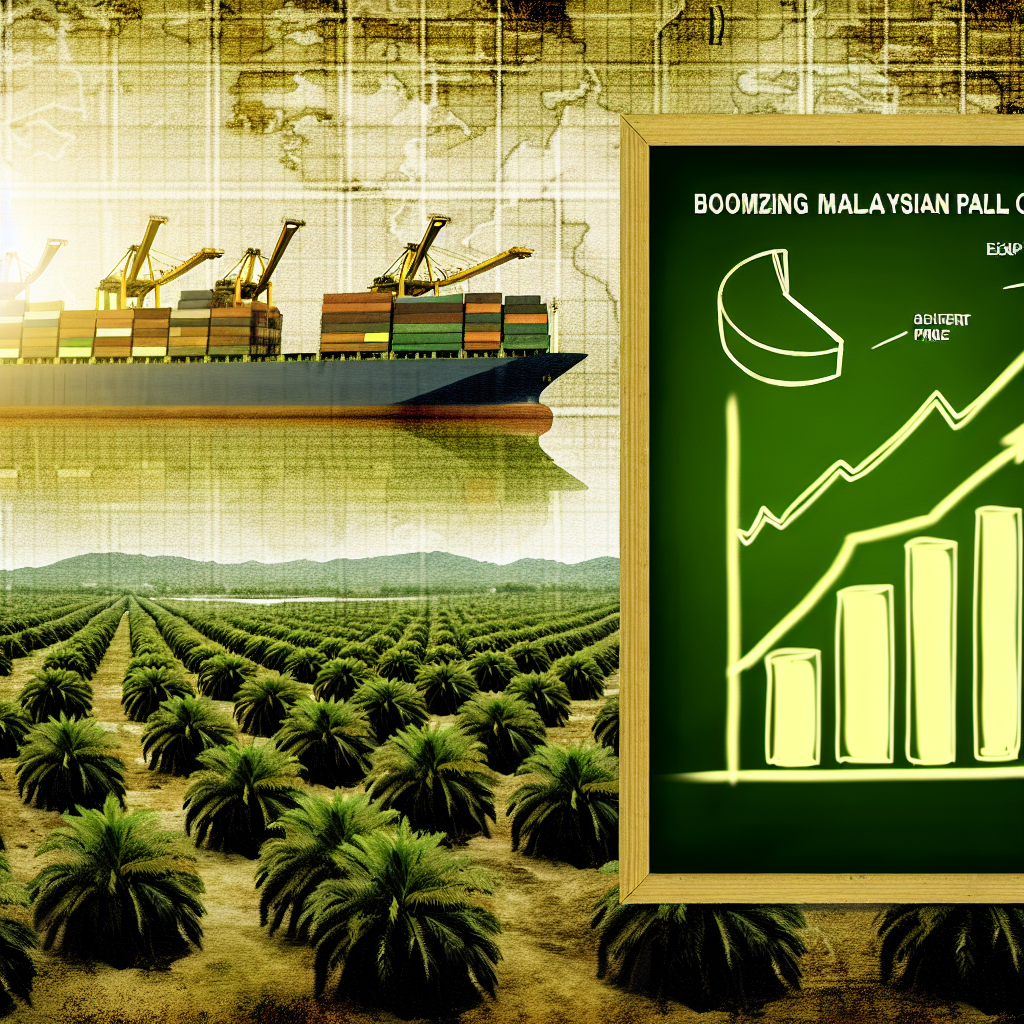Malaysian Palm Oil Producers See Share Prices Climb on Export Demand
The Malaysian palm oil industry has recently witnessed a significant surge in share prices among its leading producers, driven primarily by robust export demand. As one of the world’s largest producers and exporters of palm oil, Malaysia plays a crucial role in the global edible oils market. The recent uptick in demand, fueled by both economic recovery and shifting global consumption patterns, has positively impacted the financial performance and market valuation of Malaysian palm oil companies.
Global Demand Fuels Market Optimism
After a period of volatility caused by the COVID-19 pandemic and fluctuating commodity prices, the palm oil sector is experiencing renewed optimism. Several factors have contributed to this resurgence:
- Rising demand from major importers: Countries such as India, China, and the European Union have increased their palm oil imports due to growing food processing industries and biofuel mandates.
- Supply constraints in competing oils: Reduced production of soybean and sunflower oils due to adverse weather conditions and geopolitical tensions has shifted demand towards palm oil.
- Government support: Malaysia’s government has implemented policies to stabilize the palm oil market, including export incentives and sustainability certifications.
These factors have collectively boosted investor confidence, leading to a rise in share prices of key Malaysian palm oil producers.
Key Players Benefiting from Export Growth
Several Malaysian palm oil companies have seen their stock prices climb significantly in recent months. Notable examples include:
- IOI Corporation Berhad: One of Malaysia’s largest palm oil producers, IOI has reported a 15% increase in share price over the past quarter, supported by strong export volumes and improved profit margins.
- Sime Darby Plantation: With a diversified portfolio and extensive global reach, Sime Darby’s shares have risen by approximately 12%, buoyed by higher crude palm oil (CPO) prices and expanding international demand.
- FELDA Global Ventures Holdings (FGV): Despite past challenges, FGV has rebounded with a 10% share price increase, driven by operational efficiencies and strategic partnerships in key export markets.
These companies have leveraged their scale, sustainability initiatives, and market access to capitalize on the favorable export environment.
Statistical Insights into Export Performance
According to the Malaysian Palm Oil Board (MPOB), palm oil exports increased by 8.5% year-on-year in the first quarter of 2024, reaching approximately 4.2 million tonnes. The export value also rose by 10%, reflecting higher global prices and demand. Key statistics include:
- India: The largest importer of Malaysian palm oil, increased imports by 12% in Q1 2024.
- China: Saw a 9% rise in palm oil imports, driven by food manufacturing and biofuel sectors.
- European Union: Despite sustainability concerns, imports grew by 5%, supported by certified sustainable palm oil products.
These figures underscore the resilience and growth potential of Malaysia’s palm oil export sector amid global market dynamics.
Challenges and Sustainability Efforts
While the outlook is positive, Malaysian palm oil producers face ongoing challenges, including environmental concerns, regulatory pressures, and competition from alternative oils. To address these issues, many companies have intensified their focus on sustainability:
- Adoption of the Roundtable on Sustainable Palm Oil (RSPO) certification to ensure environmentally responsible production.
- Implementation of zero-deforestation policies and improved traceability in supply chains.
- Investment in research and development to enhance yield and reduce carbon footprint.
These efforts not only improve the industry’s reputation but also open access to premium markets that demand sustainable products.
Conclusion: A Promising Horizon for Malaysian Palm Oil Producers
The recent climb in share prices of Malaysian palm oil producers reflects a confluence of strong export demand, strategic corporate initiatives, and supportive government policies. With major importers increasing their consumption and supply constraints in alternative oils, Malaysia’s palm oil sector is well-positioned for continued growth. However, balancing economic gains with sustainability remains critical to maintaining long-term market access and investor confidence.
As the global edible oils landscape evolves, Malaysian producers who prioritize innovation, environmental stewardship, and market diversification will likely sustain their upward trajectory, benefiting shareholders and contributing to the nation’s economic development.





